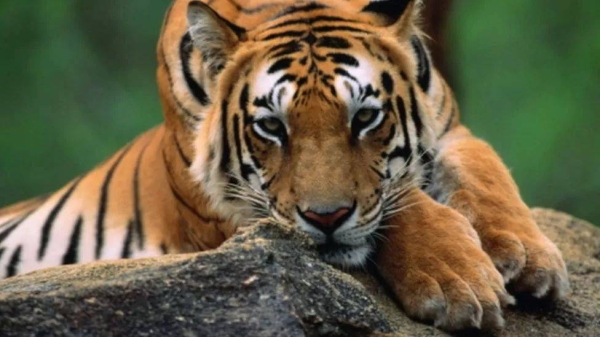
A contestant in a popular Indian version of Big Brother has been arrested for wearing a pendant made of a tiger claw to the sets of the show.
Businessman Varthur Santhosh, a participant in the Kannada-language edition of reality TV program Big Boss, was arrested on 22 October.
He has been charged for wearing and displaying an animal part, which is a punishable offence under Indian law.
Police said that Santhosh told them the pendant was a family heirloom.
The forest department in the southern Indian state of Karnataka said they received a complaint after Santhosh appeared on the popular TV show wearing the pendant on a thick gold chain.
Forest officials contacted Mr Santhosh through the show"s crew and questioned him, the Indian Express newspaper reported.
"When we checked the pendant, it was confirmed that it was a tiger claw," Bengaluru Urban Deputy Conservator of Forests N Ravindrakumar told the newspaper.
Santhosh is yet to make a public statement, but police said that during questioning, he told them that the pendant had been in his family for generations.
Under India"s wildlife protection law, the offence of displaying animal parts can attract three to seven years in jail.
Tigers are an endangered species and the global wild tiger population dropped by around 95% over the past century, according to World Wide Fund statistics.
The big cat is also India"s national animal and nearly 75% of the world"s tigers are estimated to be in the country, according to the federal government.
India had launched Project Tiger in the 1970s after the animal"s population dipped significantly.
But since then, a number of government initiatives have been put in place to conserve the tiger - including a ban on hunting and awareness drives in villages.
Since 2006, there has been a healthy uptick in tiger numbers. Last year, the federal government released its tiger census report which said India"s tiger population had increased to 3,167 tigers - 200 more than it had in 2018.
But it also noted that the local tiger population had become extinct in several areas, including in some reserves, and said "serious conservation efforts" were required in states including Jharkhand and Andhra Pradesh. — BBC












